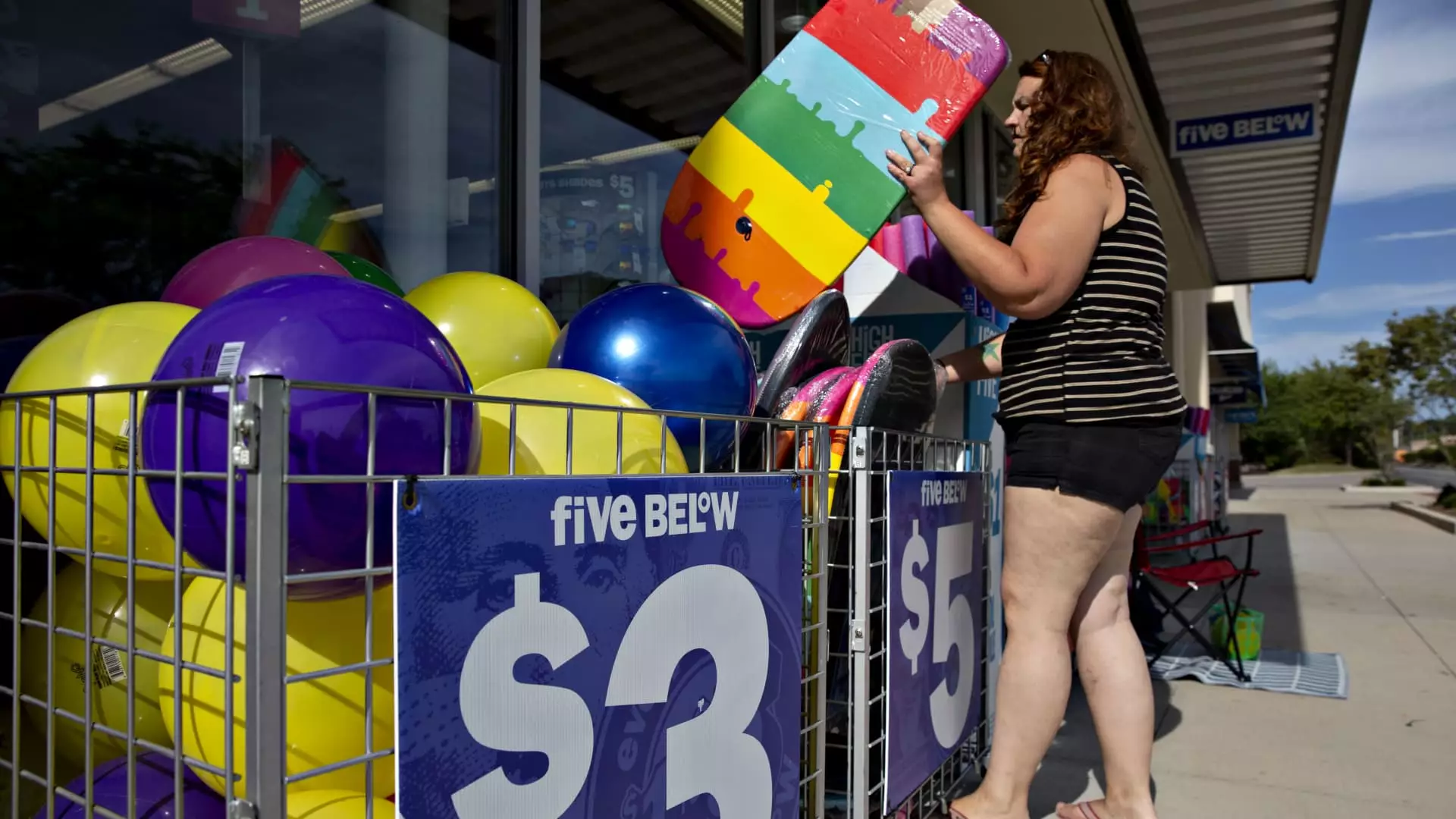Despite signs of easing inflation, the effects of it are still being deeply felt by consumers, particularly those in the lower-income demographic. Joel Anderson, CEO of Five Below, highlighted the challenges faced by the lower-end customers, emphasizing the need to deliver value and adjust marketing strategies to cater to their needs. The underperformance in this segment suggests a significant impact of inflation on consumer behavior and spending patterns.
Five Below issued soft revenue guidance for the second quarter and the full year, with first-quarter revenue falling below expectations. This led to a sharp decline in share prices, indicating the struggles faced by retailers to meet consumer demand in the current economic landscape. Consumers are becoming more discerning with their purchases, opting for essential products over discretionary items, reflecting a shift in shopping behavior due to inflationary pressures.
While there are some positive indicators of economic improvement, consumer sentiment has been lagging behind. The University of Michigan Survey of Consumers reported a significant drop in consumer sentiment in May, with more than half of Americans mistakenly believing that the country is in an economic recession. This lack of confidence in the economy is influencing consumer behavior, leading to cautious spending habits and a focus on necessities rather than luxuries.
Anderson noted that consumers are increasingly purchasing products from the “consumable” categories, such as food, candy, beauty, and health aids, indicating a greater emphasis on essential items as opposed to discretionary goods. The success of Five Beyond, the company’s in-store shop offering products above $5, among lower-income households further demonstrates the importance of perceived value in consumer spending decisions. As consumers feel the impact of inflation on their budgets, they are more likely to prioritize value and affordability in their purchases.
The impact of inflation on consumer behavior and retail operations is evident in the current market conditions. Retailers are facing challenges in meeting consumer expectations and adapting to changing preferences driven by economic uncertainties. As the economy continues to navigate through inflationary pressures, businesses must focus on delivering value, enhancing customer experience, and understanding the evolving needs of consumers to thrive in a competitive marketplace.

